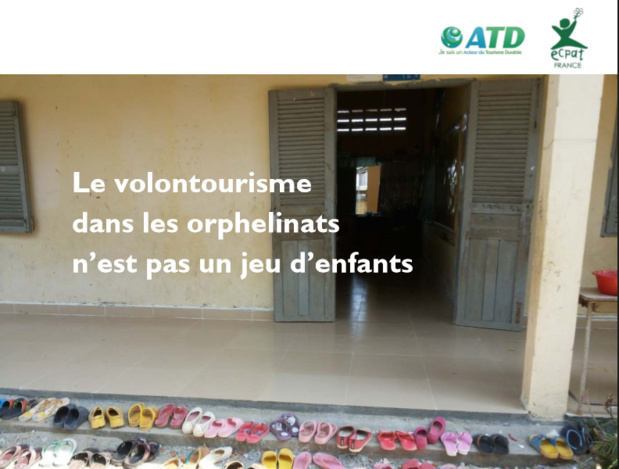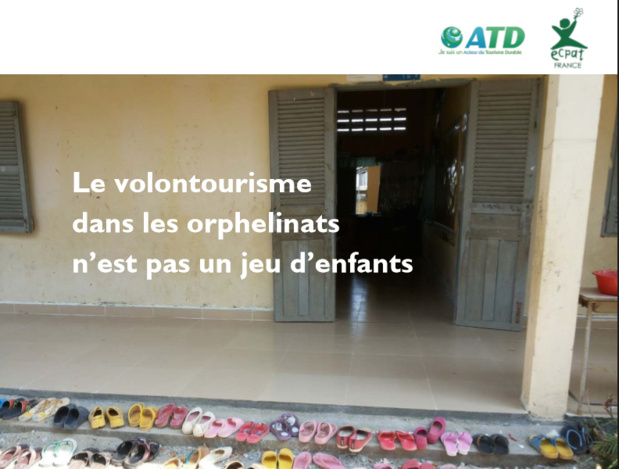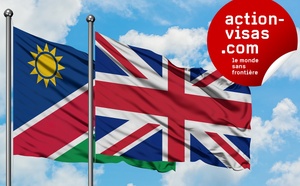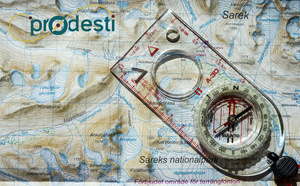
The campaign is set up by ATD and Ecpat France - DR
This Wednesday July 8th, 2015, Actors of Sustainable Tourism (ATD) and Ecpat France announce the launch of a common campaign to denounce the abuses of tourism in orphanages.
It is called “volunteer tourism in orphanages is no child’s play,” and it is aimed at “the thousands of Westerners who volunteer in leisure centers for children in developing countries.”
The two organizations admit that “at first sight, volunteer tourism and particularly, “orphanage tourism” emerges from goodwill.” But they specify that the intentions of the volunteers “don’t always take into account the fact that these children need a long-term support.”
According to the campaign, short and misdirected visits can lead to considerable risks.
It is called “volunteer tourism in orphanages is no child’s play,” and it is aimed at “the thousands of Westerners who volunteer in leisure centers for children in developing countries.”
The two organizations admit that “at first sight, volunteer tourism and particularly, “orphanage tourism” emerges from goodwill.” But they specify that the intentions of the volunteers “don’t always take into account the fact that these children need a long-term support.”
According to the campaign, short and misdirected visits can lead to considerable risks.
Hyperactivity issues, emotional problems, and fake orphanages
They can lead to psychological problems for the children. Those who have lived separated from their family for a long time in structures like orphanages can be hyperactive and have emotional problems. They get attached quickly and easily to people they don’t know.
“Being constantly separated from volunteers, these children grow up and develop an emotional trauma,” believe ATD and Ecpat France.
Another risk: the creation of fake orphanages through “unscrupulous intermediaries who take advantage of the poverty of the parents.” For example, according to Unicef, in Cambodia, 85% of the children placed in orphanages would still have at least one of their parents alive, and 70% of the structures were opened by individuals without official authorization.
They house the youngsters in “run-down buildings where a large part of the classes are offered by volunteers who, for the most part, have little to zero experience in teaching.”
The campaign cites another example: that of Nepal, where 80% of the orphanages are located in the 3 most touristic cities in the country. “Thus, inadvertently, when volunteer tourism is based on short-term volunteering within orphanages, it fosters corruption and child trafficking,” warn ATD and Ecpat France.
“Being constantly separated from volunteers, these children grow up and develop an emotional trauma,” believe ATD and Ecpat France.
Another risk: the creation of fake orphanages through “unscrupulous intermediaries who take advantage of the poverty of the parents.” For example, according to Unicef, in Cambodia, 85% of the children placed in orphanages would still have at least one of their parents alive, and 70% of the structures were opened by individuals without official authorization.
They house the youngsters in “run-down buildings where a large part of the classes are offered by volunteers who, for the most part, have little to zero experience in teaching.”
The campaign cites another example: that of Nepal, where 80% of the orphanages are located in the 3 most touristic cities in the country. “Thus, inadvertently, when volunteer tourism is based on short-term volunteering within orphanages, it fosters corruption and child trafficking,” warn ATD and Ecpat France.
Risks of sexual abuses of children
The two partners also warn against sexual abuse of children.
In doing so, they cite legal proceedings, some ongoing, in which are implicated individuals who are looking to create an orphanage or infiltrate organizations and existing structures to abuse vulnerable children.
By acting under the “cover” of workers, volunteers, or donors, they benefit from a position that provides them access to these young children. A study from 2013, led in Holland, proves that out of the 85 examined investigations of suspicious sexual exploitation cases in tourism, 13 concerned abusers met their victims in the context of humanitarian work.
To reduce at a maximum the risks of sexual abuses, ATD and Ecpat France provide “advices to volunteers.” They recommend to assure themselves that the responsible organization is legally registered, that the mission aims at reinforcing the technical skills of the personnel, to prioritize long-term mission and contact organizations that implement a code of conduct within their structure.
It is also advised to never be alone with a child in closed quarters and to not sleep at the orphanage with the children. Also avoid taking photos of the children and to publish images of them on social networks.
Finally, the two organizations ask travelers to report all situations, even doubtful, of sexual abuse of minors to the Embassy of their country or on the platform ReportChildSexTourism.eu.
In doing so, they cite legal proceedings, some ongoing, in which are implicated individuals who are looking to create an orphanage or infiltrate organizations and existing structures to abuse vulnerable children.
By acting under the “cover” of workers, volunteers, or donors, they benefit from a position that provides them access to these young children. A study from 2013, led in Holland, proves that out of the 85 examined investigations of suspicious sexual exploitation cases in tourism, 13 concerned abusers met their victims in the context of humanitarian work.
To reduce at a maximum the risks of sexual abuses, ATD and Ecpat France provide “advices to volunteers.” They recommend to assure themselves that the responsible organization is legally registered, that the mission aims at reinforcing the technical skills of the personnel, to prioritize long-term mission and contact organizations that implement a code of conduct within their structure.
It is also advised to never be alone with a child in closed quarters and to not sleep at the orphanage with the children. Also avoid taking photos of the children and to publish images of them on social networks.
Finally, the two organizations ask travelers to report all situations, even doubtful, of sexual abuse of minors to the Embassy of their country or on the platform ReportChildSexTourism.eu.













![Grève ferroviaire avant un vol long-courrier : quelle responsabilité pour l’agence ? [ABO] Grève ferroviaire avant un vol long-courrier : quelle responsabilité pour l’agence ? [ABO]](https://www.tourmag.com/photo/art/large_16_9/93267624-65232351.jpg?v=1766077435)













![De l’auberge de jeunesse au Generator : toute une histoire [ABO] De l’auberge de jeunesse au Generator : toute une histoire [ABO]](https://www.tourmag.com/photo/art/large_16_9/93247694-65219608.jpg?v=1765984636)















